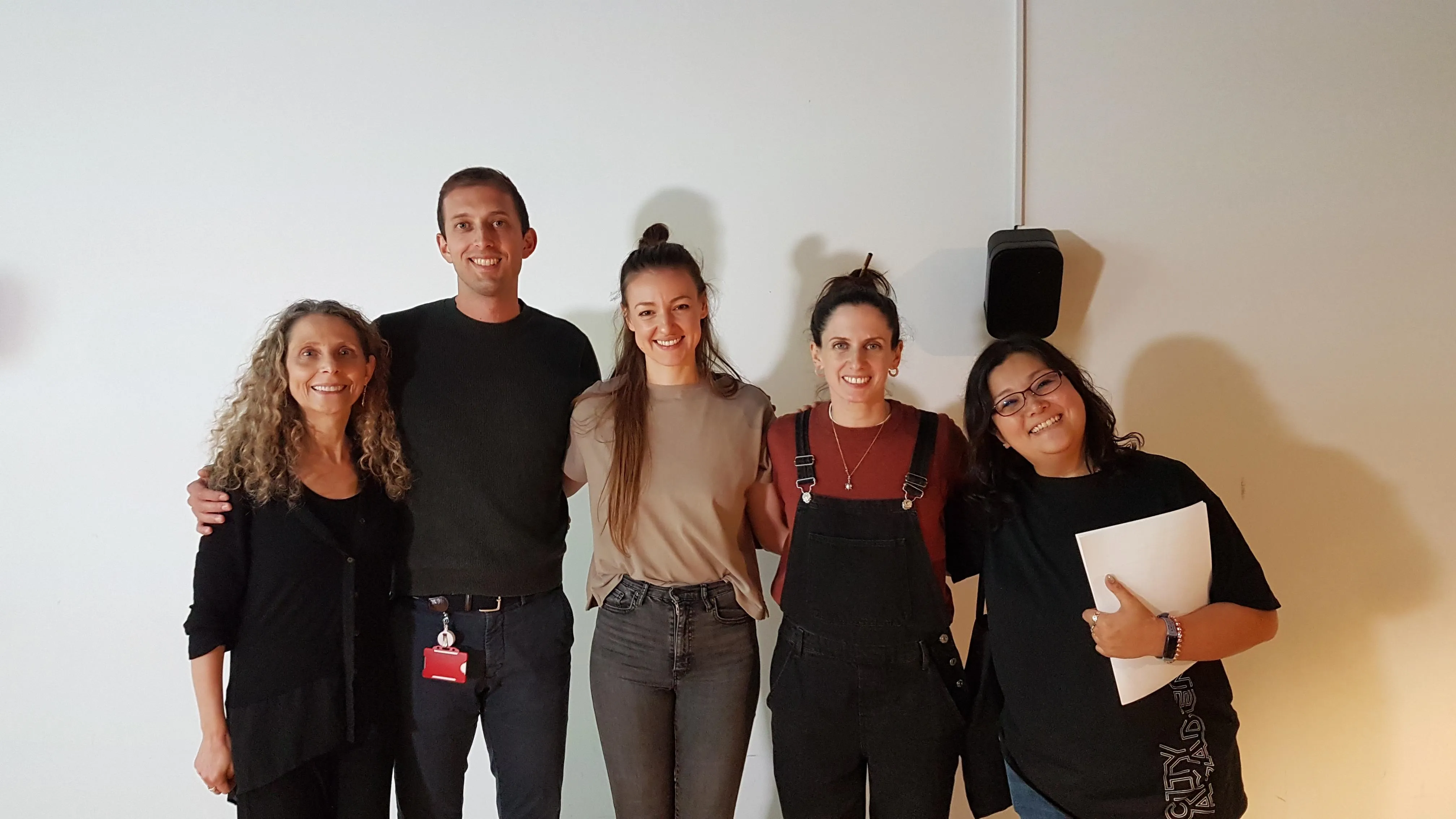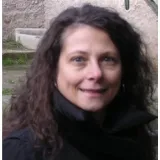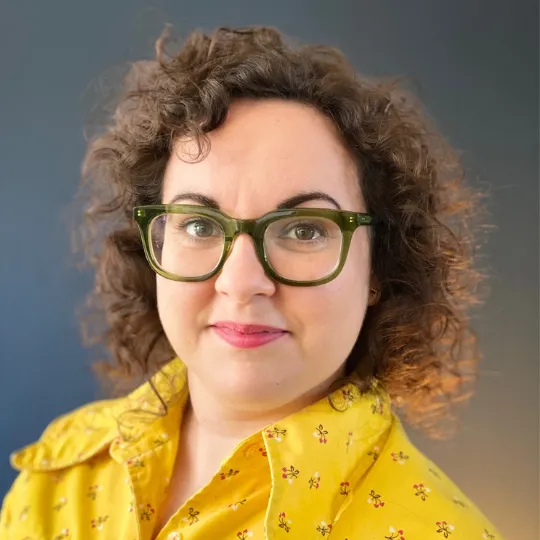19 December 2023
Researchers and dancers explore molecular science through movement
The exploratory workshop sought to understand how dance unlocks richer scientific understanding of complex biophysical ideas
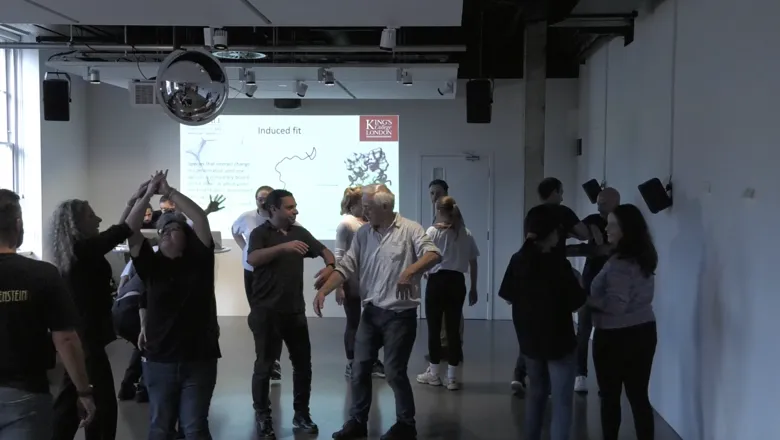
This term, researchers from the Randall Centre for Cell and Molecular Biophysics collaborated with King’s Culture and artists from Luz & Mannion Dance Company to host a workshop exploring how molecular science culture could be expressed, revealed and communicated through body movement and dance.
Hosted at Science Gallery London, Guy’s Campus, the workshop sought to visualise dynamic systems of molecules interacting with one another through a science-art perspective. Through impersonating molecules and creating a spatial and dynamic impression of how they interact, scientists and artists worked together to immerse themselves in a world it can otherwise be more complicated to visualise or conceive.
“I am a scientist fascinated by molecules which are the building block of life”, said Sasi Conte, Professor of Structural Biology and Head of the Randall Centre for Cell and Molecular Biophysics. “Every movement, feeling, action, desire, metabolic function in our body is underpinned by molecular interactions, and defective molecular interactions may lead to disease states,”
“In this workshop we chose specific scientific concepts of molecular interactions to provide distinct parameters for choreographic intervention and educational purposes”, she continued. “I believe that this workshop has provided scientists and artists with a way to find and form connections between science and art, in particular, exploring concepts of motion, shape, contact and dynamic spatial and temporal relationships found in both molecular sciences and dance.”
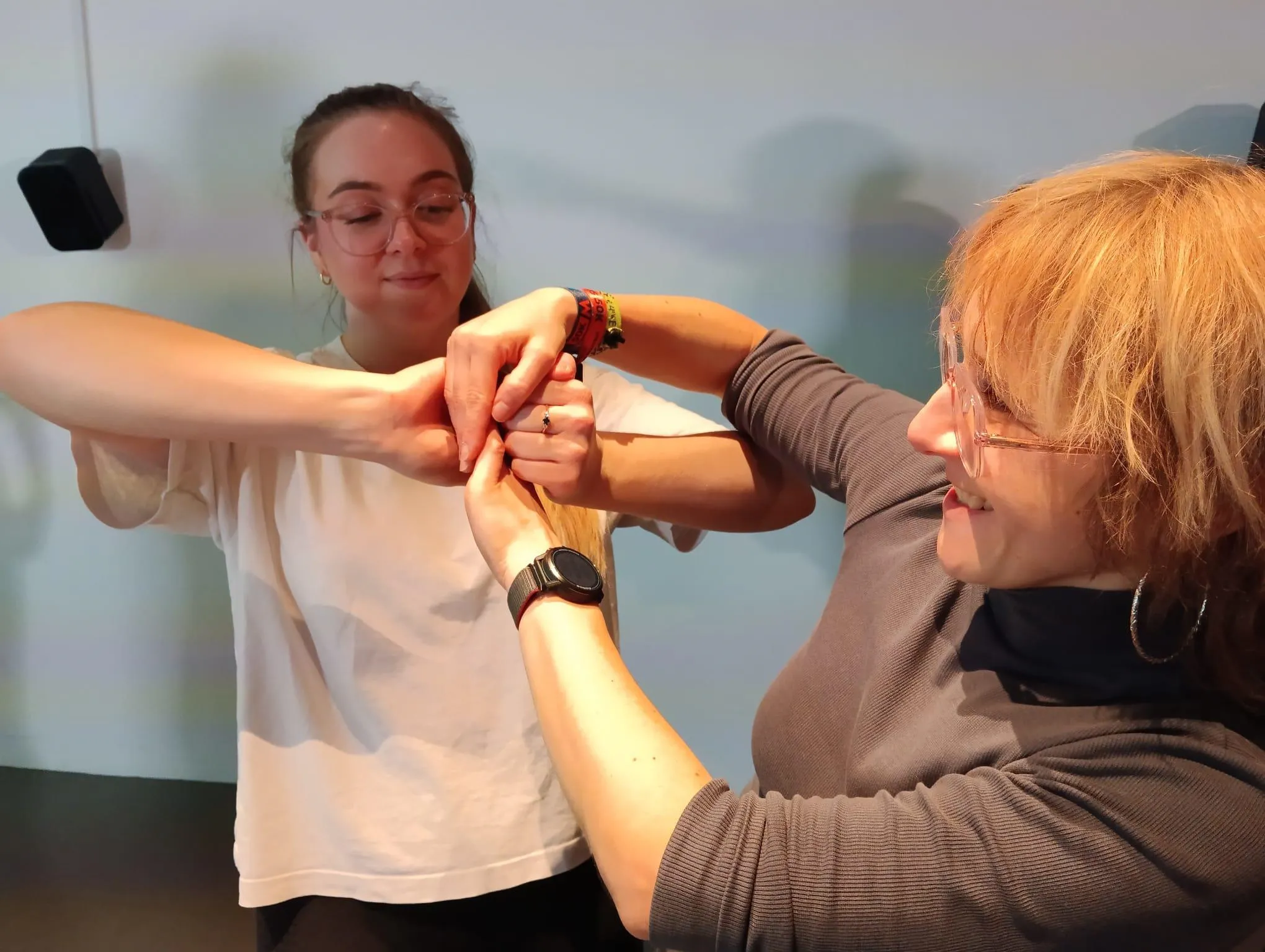
The academic participants in the workshop shared that they found it useful for finding creative ways to engage with non-scientists, and for translating their research for a wider audience. “It was amazing”, said one researcher after the session. “I never thought that dancing can be a way to show and experience molecular interactions. I loved it!”
The artists also reflected on how running a dance workshop in collaboration with Professor Conte “enabled scientific knowledge to develop ideas and creative representations.” They appreciated the duality of both the scientific and artistic perspectives, and are excited by the potential for more ideas that could be explored through movement.
The workshop was supported by King’s Culture, the university’s specialist knowledge exchange institute that catalyses creative collaborations for knowledge exchange and impact across a wide range of disciplines. Laura L’Aimable, Cultural Engagement Manager for King’s Culture, said “it was fantastic to see how using a creative approach was so inspiring to the scientists from the Randall. This collaboration is a great example of how we can bring together groups of people with different perspectives for mutual benefit, and speaks to Science Gallery London’s role in bringing together art and science.”
Looking ahead, Professor Conte said, “I am extremely excited to continue and expand this work for the Randall Centre with King’s Culture and the artists, to explore different scientific concepts and outcomes”.
This workshop was conducted with special thanks to Michaeljohn Kalakoutis, Risa Mori, Sadie Hallett and Florence Mattingly-Peck, The School of Basic & Medical Biosciences (Faculty of Life Sciences & Medicine) and artists from Luz & Mannion Dance Company.
